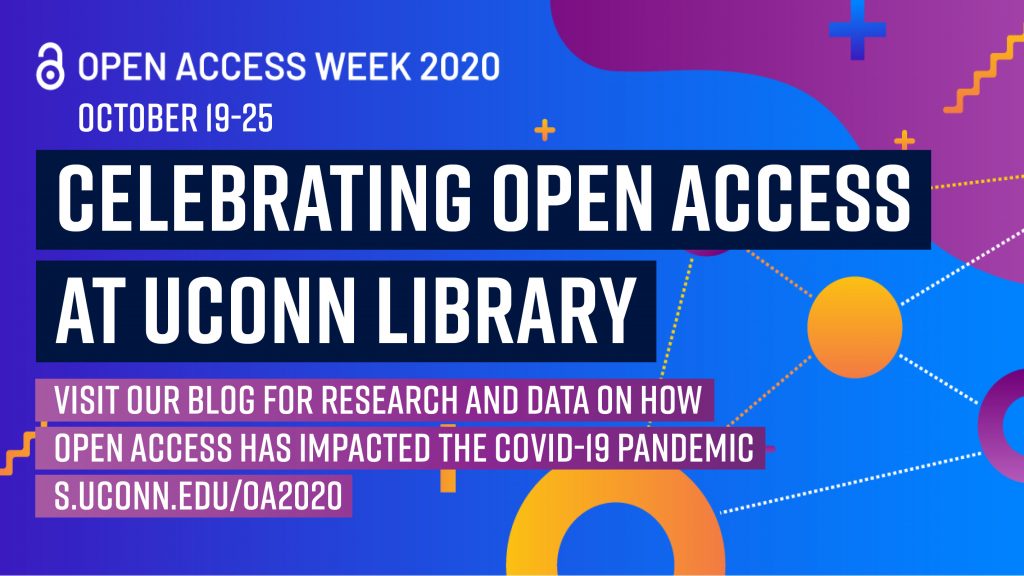In celebration of Open Access Week 2020, this is the second blog in a series of five written by the UConn Library Scholarly Communications Coordinating Group (SCCG) to explore how Open Access has impacted the COVID-19 pandemic. To learn more about the SCCG and find more resources, see our Scholarly Communications webpage.

During the COVID-19 pandemic, access to data has become vitally important as infection rates and deaths are tracked, local resource information is made available, and researchers work together to sequence the virus and create a vaccine.
Data dashboards have become a quick, easy way to share numbers and visual information about the pandemic. The Johns Hopkins University COVID-19 Map has become well-known and shows real-time information about the pandemic in an easy to read format.
The open data available is also bringing known disparities in the healthcare system into a fresh light.
- The Data4BlackLives COVID-19 Dataset captures state-level COVID-19 cases and deaths for Black people in the United States.
- Johns Hopkins has information on which states have released virus data based on race.
- The COVID Racial Data Tracker is a collaboration between the COVID Tracking Project and the Boston University Center for Antiracist Research gathering the most complete and up-to-date race and ethnicity data on COVID-19 in the United States.
Open data in these cases can help you make informed choices about staying safe in your community, can help you understand the ongoing pandemic, and can highlight areas where you can take action and stay informed about how the pandemic is affecting others around you.

